What Are Undergraduate Degrees In Fine Arts? An Overview
In this article, we will be talking about the most talked about aspects of fine arts bachelor’s degrees. From its description, demand, cost, and even the most asked-about specializations and majors.
Bachelor of Fine Arts: Description, Time, Demand, and Requirements
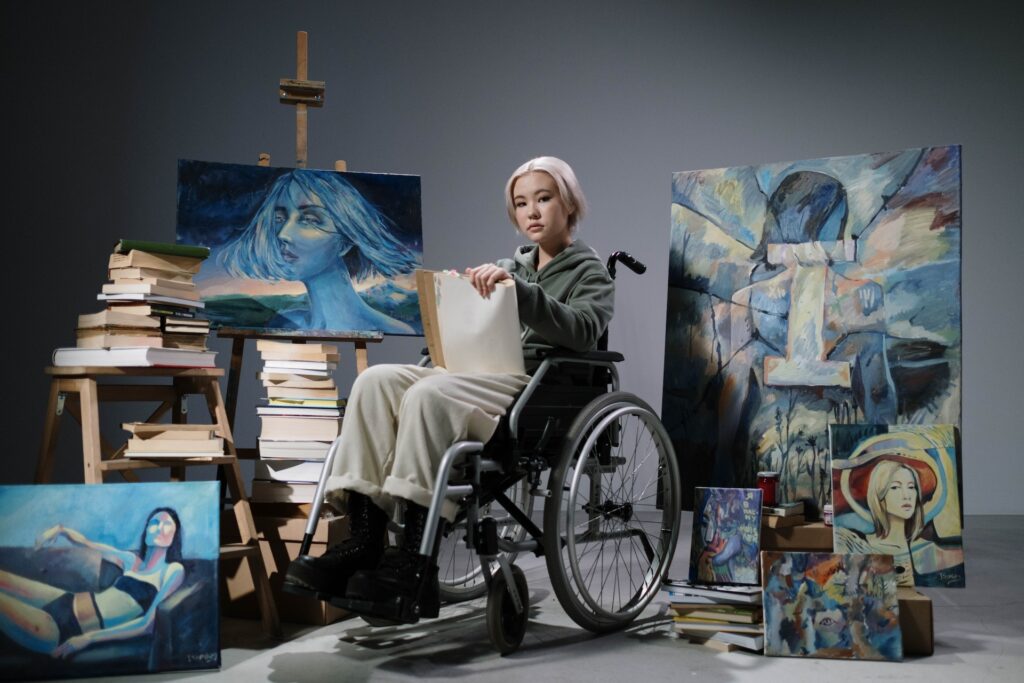
A Bachelor of Fine Arts (BFA) is an undergraduate degree with a 4-year program that focuses on the study of visual or performing arts disciplines. It is a specialized program designed for students seeking to develop their artistic skills and pursue a professional career in fields such as painting, sculpture, photography, graphic design, theater, dance, music, or film. The BFA curriculum offers broad or specific training in artistic techniques, theories, history, and creative processes depending on what specific path a student chooses.
The demand for individuals with a Bachelor of Fine Arts degree varies depending on the specific field and the prevailing trends in the arts industry. Graduates may find opportunities in various sectors, including galleries, museums, advertising agencies, design firms, theater companies, film studios, and educational institutions.
Requirements for the BFA program typically include a combination of studio courses, art history and theory classes, general education requirements, and sometimes an exhibition or performance component to showcase students’ work. Admission to a BFA program is often competitive and may require a portfolio review or audition, depending on the discipline. Additionally, students are encouraged to engage in internships, participate in artistic collaborations, and seek opportunities to showcase their work outside of the classroom to enhance their professional growth and networking prospects.
Fine Arts Bachelor’s Degrees Are Not The Same As Liberal Arts Bachelor’s Degrees
Fine Arts degrees and Liberal Arts degrees differ in their academic focus and curriculum. While both degrees fall under the broader category of bachelor’s degrees in the arts, they have distinct educational objectives, different general courses, and most importantly different subjects they tend to focus on in their respective curriculums.
A BFA Degree emphasizes the development of artistic skills, creativity, and technical proficiency in specific artistic disciplines such as visual arts, performing arts, or design. The curriculum typically includes studio courses, art history and theory, and hands-on practical training to hone artistic abilities. The primary goal is to prepare students for careers in the arts industry, equipping them with the necessary artistic techniques and knowledge.
On the other hand, a liberal arts degree encompasses a broader range of subjects across disciplines such as humanities, social sciences, natural sciences, and mathematics. The curriculum is designed to provide a well-rounded education, focusing on critical thinking, problem-solving, communication skills, and a broad understanding of various academic fields. Liberal Arts courses encourage intellectual exploration, interdisciplinary studies, and the development of a versatile skillset applicable to a wide range of careers.
Is a BFA Degree Right For You?
To pursue any of the fine arts degrees requires a major investment in time and money. The best way to ensure that neither of these investments goes to waste is to make sure that this specific path is something that fits perfectly your strengths and goals. We listed below some aspects you have to check first before you take a dive into the fine arts degrees
Passion for the Arts
Pursuing BFA programs require a genuine passion for the arts. If you find yourself constantly drawn to creative expression, have a deep appreciation for various art forms, and feel a strong desire to explore your artistic potential, then this degree may be a perfect fit for you.
Creativity and Imagination
Fine arts degrees offer a platform to cultivate and enhance your creativity and imagination. If you thrive in environments encouraging experimentation, unconventional thinking, and pushing artistic boundaries, this degree can provide the freedom and opportunities to explore your artistic vision.
Dedication and Discipline
Pursuing a Bachelor’s in Fine Arts demands dedication and discipline. It involves rigorous coursework, intensive studio sessions, and a commitment to honing your craft. If you possess the drive to continually push yourself, invest time in developing your skills, and maintain a strong work ethic, this degree can offer a rewarding path to artistic growth.
A Desire for Artistic Expression
Are you eager to communicate your thoughts, emotions, and ideas through various artistic mediums? Pursuing a Bachelor’s in Fine Arts can provide you with the tools and knowledge to express yourself artistically and engage with others through your work. If you yearn for a platform to share your unique voice and perspectives, this degree can offer a powerful outlet for self-expression.
Openness to Critique and Growth
In the pursuit of a Bachelor’s in Fine Arts, you will encounter critiques and feedback on your work. Being open-minded and receptive to constructive criticism in this very broad education is important as it helps you grow as an artist. If you embrace challenges as opportunities for growth and desire to refine your artistic abilities continuously, this degree can provide a supportive environment for your artistic journey.
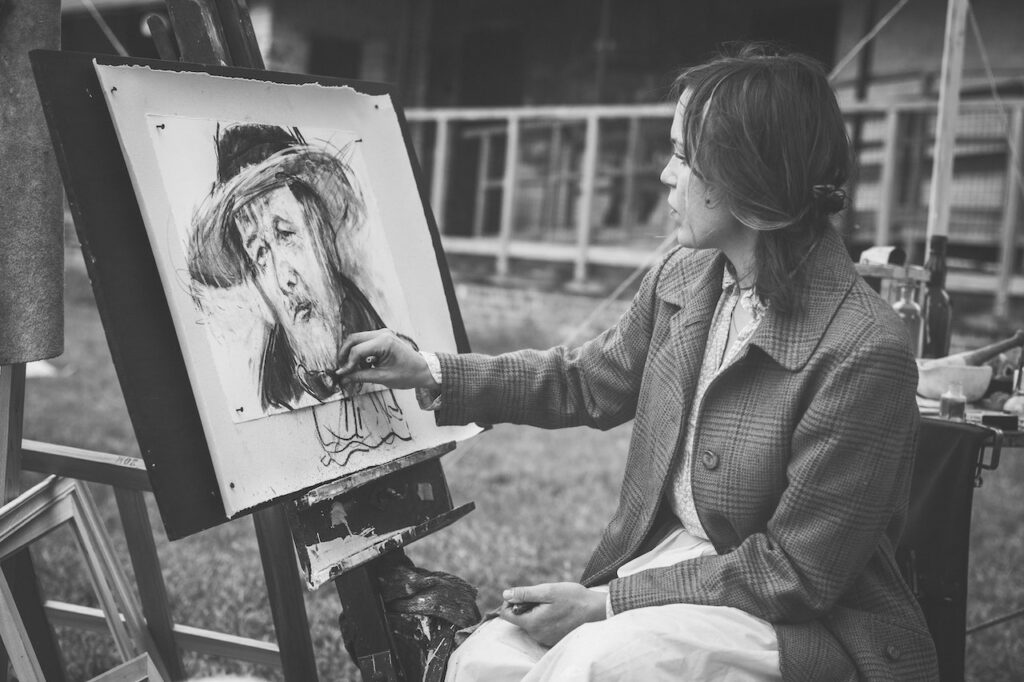
Bachelor of Fine Arts Degree: Majors and Specialty Areas
We listed the most common and in-demand specialty areas when young students pursue a fine arts bachelor’s degree.
Bachelor’s Degrees in Art Education
A fine art degree focusing on Art Education equips individuals with the knowledge and skills to become art teachers. This degree combines artistic proficiency with pedagogical training, enabling graduates to inspire and guide students in exploring their creativity. Art education programs emphasize the development of artistic techniques, art history, curriculum design, and teaching methodologies.
Art educators play a vital role in fostering artistic expression, cultural appreciation for the creative arts, and critical thinking skills in students. They create engaging lesson plans, provide constructive feedback, and cultivate a nurturing learning environment. Through their expertise, art educators empower students to discover their artistic abilities and gain a deeper understanding of the world through art.
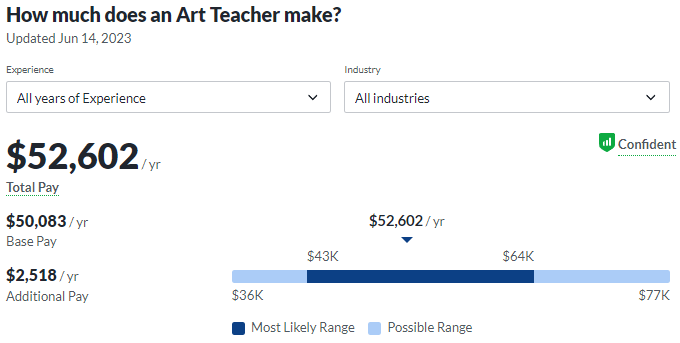
Teaching art is a noble job for it prepares aspiring artists for the professional scene in the near future. With that being said, the average annual pay of $52,602 is compensated for art teachers.
Bachelor’s Degree in Creative Writing
A Bachelor’s Degree in Creative Writing is designed for aspiring writers seeking to refine their craft. This degree program emphasizes the development of writing skills across various genres, including fiction, poetry, and non-fiction for every bachelor pursuing this path. Creative writing courses provide a platform to explore different writing techniques, experiment with language, and learn how to construct compelling narratives.
Every bachelor in this program possesses strong communication skills, creativity, and a deep understanding of storytelling. They are equipped to pursue careers in various fields such as publishing, journalism, content creation, and freelance writing. Creative writing degree holders often bring a unique perspective, innovative ideas, and the ability to captivate audiences through their written words.
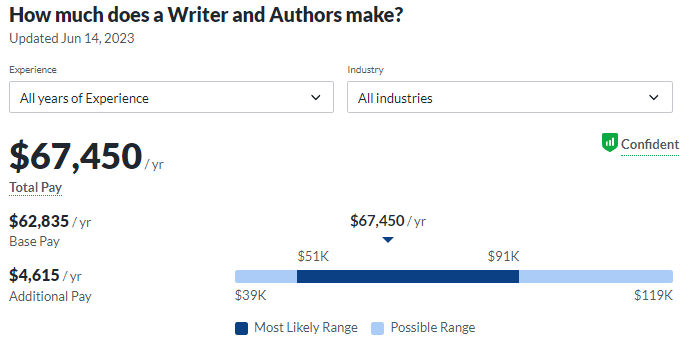
Students pursue creative writing mostly with the intent to be an author and create books that they hope will be passed down for ages. In today’s world, authors and writers make an average of $67,450 per year and that figure highly varies depending on their book’s number of copies sold.
Bachelor’s Degree in Dance
A Bachelor’s Degree in Dance is an intensive program that trains students in the art of dance performance. This degree combines technical training with theoretical knowledge, exposing students to various dance styles, choreography, stage management, and dance history. Dance students develop physical strength, flexibility, coordination, and artistic expression.
They learn the importance of discipline, perseverance, and collaboration in the pursuit of their craft. Graduates of this program can pursue careers as professional dancers, choreographers, dance instructors, or even dance therapists. The skills acquired through a dance degree, such as creativity, self-expression, and teamwork, are transferable to other fields as well.
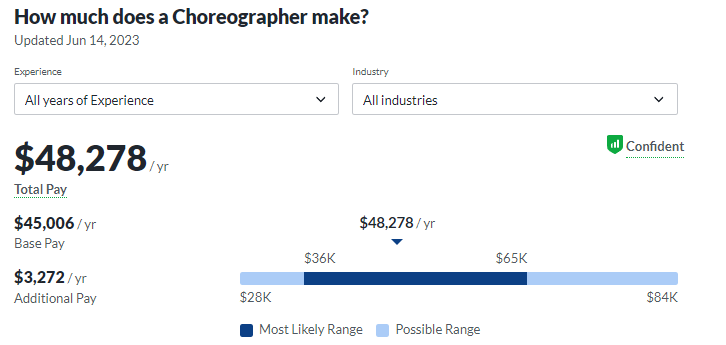
Being a choreographer is one of the most common jobs for this fine arts degree. With $48,278 as their annual salary, choreographers are the innovators in the world of dance.
Bachelor’s Degrees in Dance Education
A Bachelor’s Degree in Dance Education prepares individuals to become dance teachers, focusing on imparting their knowledge and passion for dance to students. This degree program combines dance techniques with educational coursework, teaching methods, and curriculum design. Dance education majors learn how to effectively communicate dance concepts, develop lesson plans, and nurture students’ artistic growth.
They acquire a comprehensive understanding of dance history, anatomy, and pedagogical theories. Dance educators play a crucial role in fostering creativity, promoting physical fitness, and developing students’ self-confidence. Graduates of this program can pursue careers as dance instructors in schools, dance studios, and community centers, or even start their own dance education programs.
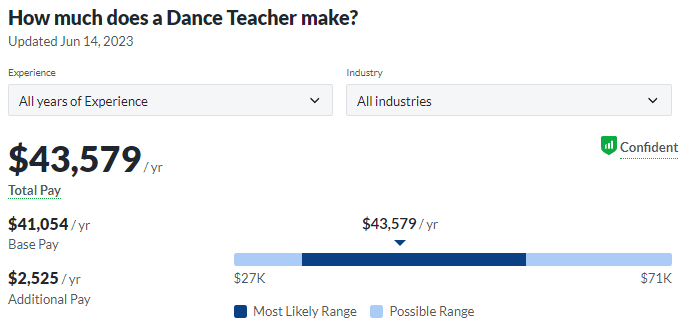
A dance teacher brings home $43,779 per year according to Glassdoor.com.
Bachelor’s Degree in Design
A Bachelor’s Degree in Design equips students with the skills and knowledge to become professional designers in various fields of visual arts such as digital arts, product design, or interior design. This degree program emphasizes creativity, critical thinking, and problem-solving skills. Design students learn how to effectively communicate through visual mediums, utilize design software, and develop a keen eye for aesthetics.
They gain expertise in conceptualizing and executing design projects that meet both functional and artistic requirements. Graduates of a design program can pursue careers in advertising agencies, design firms, marketing departments, or work as freelance designers. Their ability to create visually appealing and innovative solutions adds value to businesses and industries.
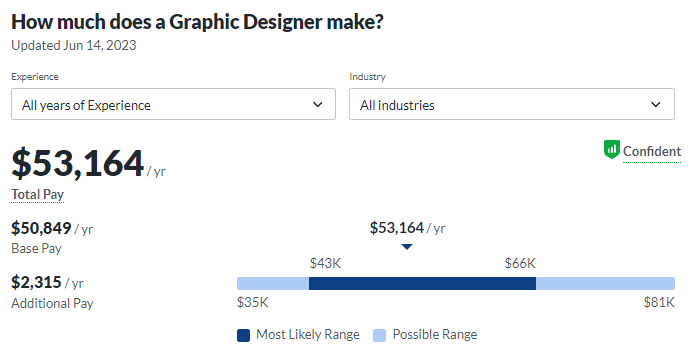
With the rise of remote work, graphic design, and digital art are filled with numerous job demands. With a $53,164 average annual salary, being a graphic designer is a great idea today.
Bachelor’s Degrees in Film
A Bachelor’s Degree in Film prepares students for careers in the dynamic world of filmmaking. This degree program covers various aspects of film production, including screenwriting, directing, cinematography, editing, and film theory. Film students gain hands-on experience using industry-standard equipment and software, learning the art of storytelling through the visual medium. They develop skills in script development, camera techniques, post-production, and film analysis.
Graduates of a film program can pursue careers as filmmakers, video editors, directors of photography, film producers, or work in the entertainment industry. Their ability to craft compelling narratives and convey emotions through film allows them to create impactful visual experiences for audiences.
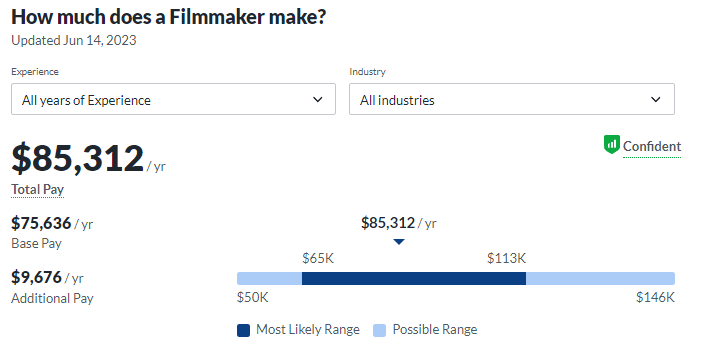
Filmmakers are said to make $85,312 per year. I guess Hollywood really has some gold for visual arts!
Bachelor’s Degrees in Music Education
The intent to provide students with the necessary skills and competencies to become music teachers in schools or private institutions is the main goal of a Music Education bachelor’s degree. This degree program combines musical training with educational coursework, teaching methodologies, and music theory. Music education majors learn to play various instruments, develop their vocal skills, and gain a deep understanding of music theory and history.
They acquire the ability to instruct students of different ages and skill levels, design lesson plans, and foster a love for music. Graduates of this program can pursue careers as music teachers in schools, music academies, and community centers, or become private music instructors. Music education majors not only possess musical talent but also have the ability to inspire and educate future generations through music.
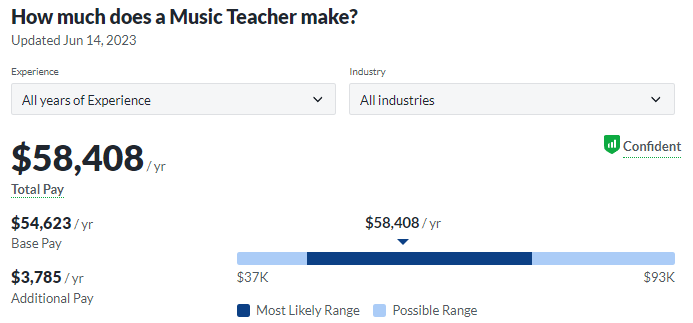
A music teacher with a fine arts degree in Music Education has an average annual pay of $58,408.
Bachelor’s Degree in Performing Arts Administration
A Bachelor’s Degree in Performing Arts Administration is designed for individuals interested in the business and management aspects of the performing arts industry. This degree program covers topics such as arts management, event planning, fundraising, marketing, and financial management. Performing arts administration students gain the skills necessary to oversee and coordinate various aspects of performing arts organizations, such as theaters, dance companies, or music ensembles.
They learn how to manage budgets, develop marketing strategies, collaborate with artists, and ensure the smooth execution of performances and events. Graduates of this program can pursue careers as arts administrators, event coordinators, and marketing managers, or work in arts organizations or cultural institutions.
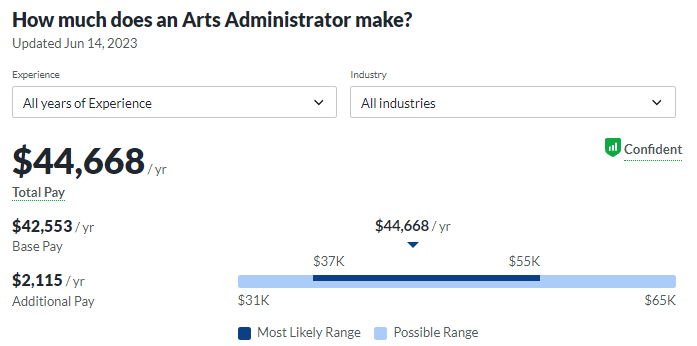
The most common job for this specific fine arts degree is arts administrator. These professionals are said to earn $44,668 per year according to Glassdoor.com
Bachelor’s Degrees in Studio art
Students choose a degree in studio art due to the fact that it focuses on developing students’ artistic skills and creative expression. This BFA degree offers a wide range of studio art courses, allowing students to explore different mediums such as painting, sculpture, drawing, printmaking, and ceramics. Studio art majors learn various techniques, experiment with different styles, and develop a personal artistic voice.
They receive guidance and feedback from experienced faculty members and have the opportunity to showcase their work in exhibitions. Graduates of this program can pursue careers as professional artists, art educators, gallery assistants, or work in the fields of illustration, animation, or art therapy. Studio art degree holders bring their unique perspectives, creativity, and artistic sensibilities to enrich the world of visual arts.
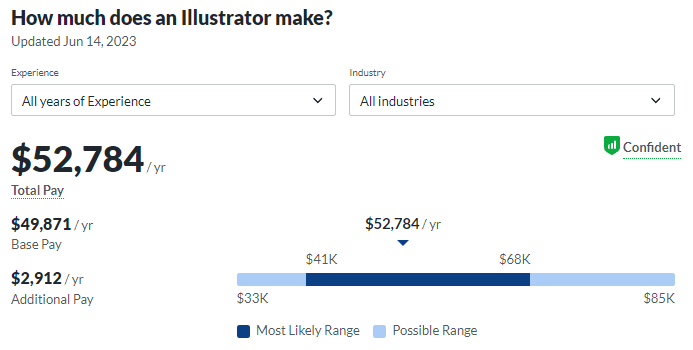
To be an illustrator is the most common path you can have with this fine arts degree. Illustrators are earning an average annual pay of $52,784.
Bachelor’s Degrees in Theater
A fine arts bachelor’s degree in theater provides specific training in the performing arts, covering aspects such as acting, directing, stagecraft, and theater history. Theater students develop skills in character analysis, vocal techniques, stage movement, theatrical acting, and script interpretation. They participate in stage productions, collaborate with fellow actors and theater professionals, and learn how to engage audiences through captivating performances.
Graduates of a theater program can pursue careers as actors, directors, stage managers, and casting agents, work in theater companies, film and television production, or even pursue further studies in theater. Theater degree holders possess strong communication skills, creativity, and the ability to effectively convey emotions and stories through the art of theater.
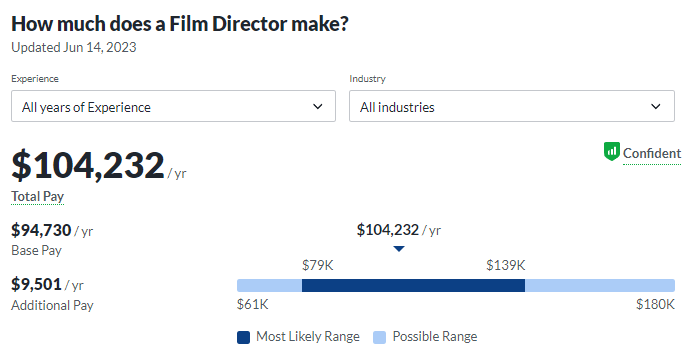
Still belonging to the visual arts career path, film directors earn $104,232 as their average annual pay. As presented in the list, the film industry is making a lot of money in today’s society.
Final Thoughts Fine Arts Programs
In conclusion, pursuing an undergraduate degree in fine arts prepare students for the opportunity to turn their passion into a fulfilling career. By embarking on this educational journey, fine arts classes not only develop the student’s artistic skills and knowledge but also cultivate the creativity, discipline, and critical thinking necessary for success in various artistic disciplines.
The fine arts programme allows you to lead a life filled with purpose and satisfaction, where your work is an expression of your true self. So embracing your creativity, ensuring that you are working on the path you dream of working on and being able to provide for your daily needs will always be a good plan.
